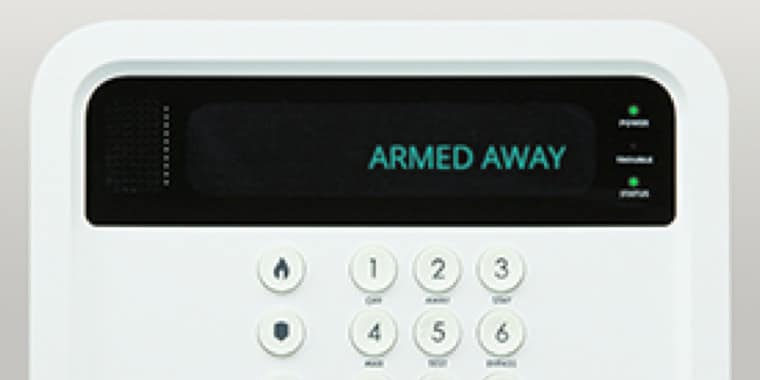Despite your efforts to make your house an impenetrable, burglar-proof haven, the sad truth is that burglaries can still happen. Perhaps you simply forgot to lock the bathroom window? Maybe an intruder used physical force to ransack your property quickly?
Whatever the case may be, these stubborn and thoughtless intruders invade the privacy of millions of American homes every year. With these break-ins comes not only the loss of your peace of mind but also the loss of your precious (and expensive) belongings. In fact, with between $2,000 - $3,000 worth of goods reported on average per break-in—you could be put in a very bad situation.
So what can victims of a break-in do to try to recover the stolen property?
How to get back stolen property.
Recovering stolen property can be stressful. You don’t know when or if you’re getting your valuables back. We’ll go over a few ways you can recover your stolen goods.
We also have some helpful tips and tricks for recovering everyday items, from a car to your smartphone.
Recovering Stolen Property from Police
While you may be shaken up after a break-in, and understandably so, one of the best measures to retrieve your stolen property is to let the proper authorities know immediately. When speaking with the police, details can make all the difference.
Know when, how and where the items were stolen. This helps the chances of getting your valuables back.
Get the names of the officers on the initial report in case you need to speak with them again or provide additional information.
Make sure you keep any serial numbers on file and supply those numbers to the police.
Provide any photographs of the stolen property when you make the initial report.
Request a case number and refer to that number when calling for any follow-up information.
Additionally, don’t be afraid to ask for your police report so you can cross-check any details and ensure that it is accurate. Once you have given the authorities every detail you can remember and have your report, follow up periodically to check the progress.
What happens if your property is involved in an open investigation?
If your valuables are a part of an open police investigation, it may take longer for you to receive them back since the items may be needed for evidence. If the perpetrator pleads guilty, you should receive your stolen items more quickly.
There are also instances in contested cases where the property doesn’t necessarily have to be present at the trial. If this is the case, it’s a good idea to get your defense attorney to speak to the prosecution and see if you can arrange to receive the stolen property back after the police department is done with it.
If the stolen goods are needed at trial, they can’t be released until after the trial and appeal process, which sometimes takes years.
Once the trial is over, if the prosecutor doesn’t want to return your valuables, you may need to file a motion for Return of Property. If your valuables still aren’t returned, the judge will determine what should happen to them.
No matter what happens, it’s a good idea to get an attorney involved, especially in more complicated situations where your property may be held as a part of a pending investigation.
How to Recover Stolen Electronics
Many items that end up stolen from your home are small, expensive, and easy to resell. This means that your laptops, tablets and smartphones are often hot-ticket items for burglars. Thankfully, some helpful hacks may help you track down these valuable items.
One helpful method to find your smartphone is to utilize an app that helps you find your phone. Often, these same apps can be used for other smart devices, too, like computers and tablets.
“Find My” is an app on iPhone and iOS that uses an iCloud account to find your lost smart device.
If your item is lost, log into your iCloud account.
Mark your phone as lost. This locks it and keeps your information secure; this also allows you to show a message with your contact info.
It’s also a good idea to file a theft report with local law officials if your phone is retrieved.
If all else fails, remotely erase your device. Keep in mind this wipes all of your data, including the ability to find your phone. Only erase it once you’re sure you won’t need it anymore or until after you’ve made an approved claim with your cell provider.
Notify your cell phone provider of your lost phone so that they can turn off texts and data use.
Pro Tip: You should have your serial number handy if your phone is lost or stolen.
If you have an Android or Google phone, you can use the application “Find my Device.”
Sign in to your Google account and log into android.com/find.
The lost or stolen phone will get an alert, and you’ll receive info on where your phone last was.
File a theft report with local law officials if your phone is retrieved.
If you can’t find your mobile device, mark it as lost and erase your information. Secure Device locks your phone; you can also set a passcode if you don’t already have one. You can also add a message to your lock screen if you want to leave a number where you can be reached.
Erase everything if you want to remove all your data; this also eliminates the ability to find your phone. Only erase your phone if you don’t think you’ll get it back.
Contact your phone carrier after you’ve erased it. They may be able to mark the phone down as a stolen phone if someone tries to use it again, and they can turn off texting and data usage for your privacy.
There are different apps and methods from Apple to Android, but the principle remains the same. You can log in from someone else’s phone or on a computer and track the exact whereabouts of your device—if it is currently on.
This can help you see if it has been left somewhere or sold to another shop. Don’t attempt to retrieve these items yourself—give this information to the authorities.
How to Recover Your Wallet and Keys
If your car keys or house keys are stolen or lost, you’ll want to notify your insurance company.
Some insurance companies cover a locksmith or towing for your car or even a locksmith for your house, so make sure to check with them.
Start a paper trail by filing a police report.
If you believe your keys were stolen and aren’t just lost, you’ll want to change the locks. But, if you have smart locks, you’re in luck! You’ll still be able to access your home, though we recommend changing the codes just to be safe.
How to Recover Your Transportation
If your car is missing, it’s a good idea to check with local towing companies first. You can often keep track of your vehicle by its VIN. But if it’s not with a local tow truck company, you’ll want to file a police report.
Make sure that you have access to your car’s VIN, license plate number and your car’s general info like make, model and color, as well as the address where your vehicle was last seen so you can add this information to the report.
Contact your car insurance company since comprehensive insurance policies can sometimes pay you the Actual Cash Value (ACV) of your vehicle (minus the deductible). And if you’re lucky enough to get your car back after it’s stolen, make sure to call your insurance company and let them know.
With the internet and social media increasing awareness for anything from a lost dog to a neighborhood watch program, social media is also a great tool to utilize. If you want to keep your privacy, we suggest using a random number generator app when you’re sharing your lost notices.
Check the Pawnshop
Oftentimes, the first stop for a burglar after a break-in is the neighborhood pawn shop. These stores don’t typically require much information or proof of purchase, so it is an easy out for some quick cash.
Just like with other items listed above, make sure you have the serial number for the item that may have been stolen, and file a police report before hunting for the item.
In most cases, you should be able to get your things back without having to pay the pawnbroker, but state law may differ, so check local regulations.
For example, the Florida Pawnbroker Act dictates that “police may no longer recover stolen property from pawnshops and return it to the victim of crime without providing the broker an opportunity of a hearing.” You can either purchase back the item or get a court order to get your valuables back after filing a petition.
Washington state requires that once you’ve reported a stolen item, the pawnbroker “shall hold that property intact and safe” for 120 days from the date you notify the police unless you receive a court order or written consent from the police department.
How to find stolen property online
In today’s age, instead of the pawnshop, savvier burglars will instead go online to sell your precious valuables. Popular sites like Craigslist and eBay enable burglars to anonymously sell your items without much risk. It is important to check online for these and similar sites as soon as possible to track down your items.
Many people turn to social media when their items go missing. All you need are some pictures and a description of the stolen items, then create a post that friends and family can share with others.
There are also some websites that help make the process easier, like Bike Index, which is a user-generated system that helps people find their missing bikes.
Make sure to also check out your local Facebook Marketplace, eBay and Craigslist listings to see if your valuables show up on there, too.
To make this process easier, you should first talk to local law enforcement about your stolen property and file a police report.
Then, if you find it online, immediately contact the police. Make sure the item is yours and have any serial numbers or identifying marks on record. For example, if your gaming console is stolen, you may not know the console you see online is yours. But if it has the same sticker as yours, the chance is a lot higher.
Check the website as often as possible. There’s no rhyme or reason when your stolen property might appear; maybe days, weeks, months or even longer.
If you find your property online, contact the police and have your serial numbers, photos or any other identifying marks on hand as proof. It’s best that you don’t try to buy your stuff back just yet.
Ask the seller for more information about the item or additional photos.
Make a note of when the item appeared online and when it was stolen from you, since this could help identify if the stolen property really is yours.
Let ADT help prevent future property theft.
Having your property stolen from you can be a harrowing experience, but ADT is here to help. With surveillance systems that include indoor and outdoor camera monitoring, doorbell video cameras and other home security options, we help you keep an eye on your home and valuables.
24/7 professional monitoring experts are also here to notify you with round-the-clock alerts sent directly to you and the authorities, so you always have peace of mind whether you’re home or away.
Frequently Asking Questions about Stolen Property?
1. Do police ever recover stolen property?
According to the FBI, about 56% of stolen motor vehicles are recovered and about 28.9% of all stolen goods overall. The sooner you file a police report, the more likely you’ll get your stolen property back.
2. Can you use force to get your property back?
Always be mindful of your local laws in getting your stolen belongings back. Many state statutes allow you to use non-deadly force only if you determine the cause to be necessary to prevent unlawful intrusion with your property.
If you see someone breaking into your car, you can open your front door and tell them that they need to stop because you’ve called the police. You are not legally allowed to shoot your gun off as a threat, as that would be considered deadly force.
3. Can you go to jail for buying stolen goods without knowing?
For someone to be convicted of receiving stolen property, the prosecutor has to show that the person who received the goods knew that they were stolen or had reasonable knowledge and should have known they were stolen.





